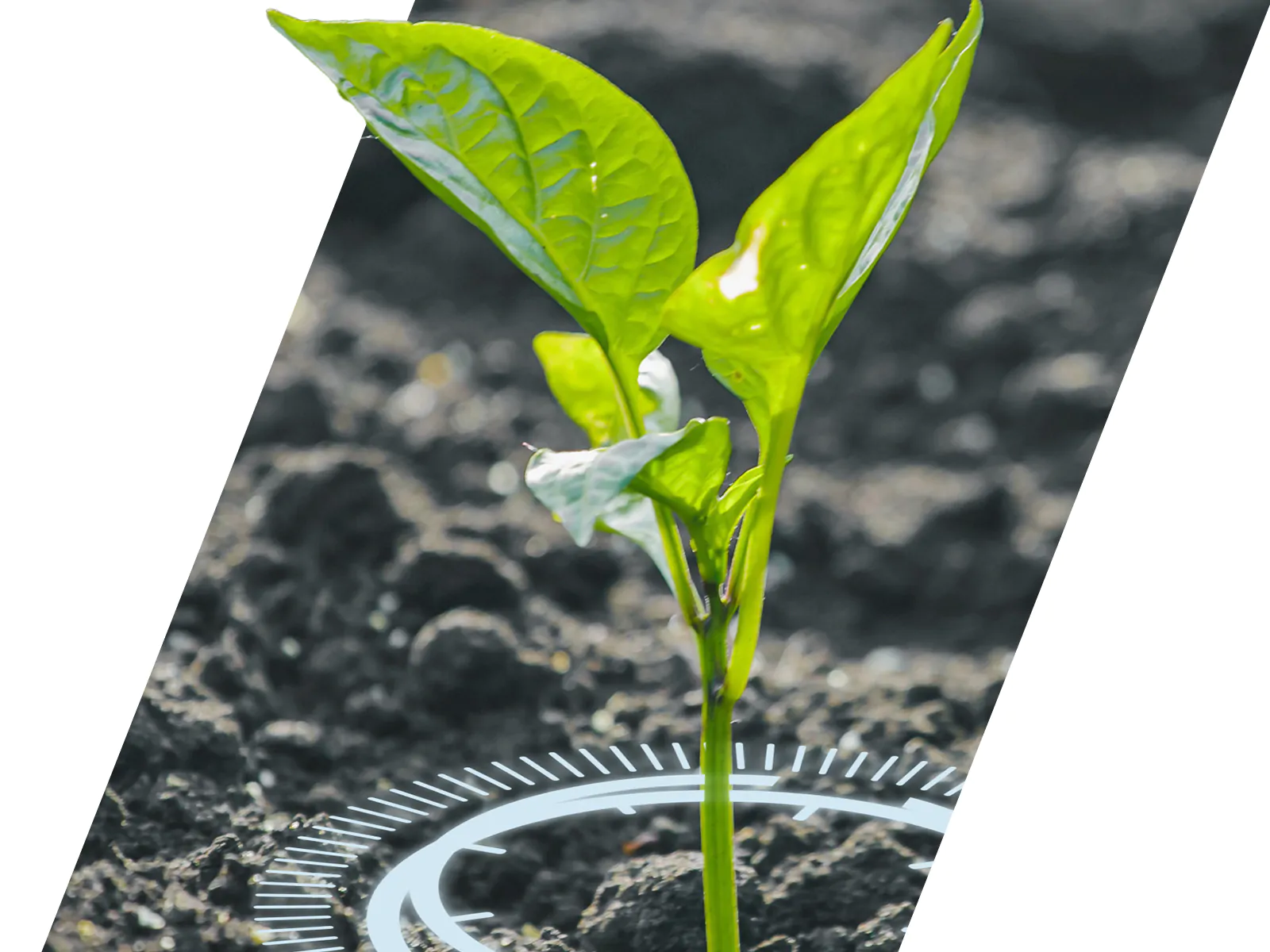The Importance of Sulphur in Fertiliser


Sulphur in Fertiliser
Whilst nitrogen is a growth promoter, sulphur works as a growth regulator, effectively balancing the manufacture of sugars and proteins in leaf tissue with the demand from these materials throughout the plant. Consequently, sulphur in fertiliser plays a crucial role in maintaining green leaf area, growth rates and delaying senescence. Low sulphur levels reduce nitrogen metabolism, leaf expansion and plant development.
The nutrient is very mobile in the soil meaning wet winters and early springs leave low reserves in the soil. Crops need a steady supply throughout rapid growing seasons, so it’s key to apply S each time N is applied in your fertiliser.
Speak to us about sulphur in your fertiliserTake a look at the importance of sulphur using OMEX liquid fertiliser in this Agrii iFarm trial.

Sulphur Inclusion In Crops
The above Agrii iFarm trial on one of their Lincolnshire iFarm sites, utilising OMEX liquid nitrogen fertiliser, clearly demonstrates the impact of Sulphur inclusion on the crop. The trial shows a striking difference, it looked at:
- No N+S
- Nitrogen but no sulphur
- The rest of the field received a nitrogen plus sulphur liquid fertiliser application

The Benefits of Including Sulphur in Your Fertiliser
There are multiple benefits to including sulphur in fertiliser such as:
- Maintains green leaf area
- Improves growth rates
- Promotes uptake of nitrogen
- Boosts nitrogen use efficiency
OMEX Liquid Nitrogen plus Sulphur grades
Nitroflo 28+S
containing nitrogen and a low level (2.5% SO3) of sulphur.
Nitroflo 26+S
containing nitrogen and 5% SO3 sulphur; for top-dressing sulphur responsive crops in the spring during periods of rapid growth and ensuring strong, even growth. The sulphur source is sulphate. The most widely used product in the Nitroflo range.
Nitroflo 24+S
containing nitrogen and a higher level of S (7.5% SO3) than Nitroflo 26+S. The sulphur source is sulphate.
Nitroflo 22+S
containing nitrogen and a higher level of S (10% SO3) than Nitroflo 24+S. The sulphur source is sulphate.
Nitroflo 20+S
containing a higher level of sulphur (12.5% SO3) for deficient areas and crops with a high demand for sulphur, such as oilseed rape. The sulphur source is sulphate.
Nitroflo 15+S
containing an equal amount of nitrogen and sulphur; ideal for first nitrogen application on oilseed rape. The sulphur source is sulphate.

Sulphur in fertiliser trials results:
- A 2019 Nitrogen plus Sulphur fertiliser trial showed: +1t/ha improvement. Sulphur applications can raise grain yield by over 1t/ha.
How Much Sulphur To Apply:
The continued reduction in sulphur deposition means that many rural areas of the UK currently receive less than around 5 kg/ha of S from the atmosphere. The following recommendation take this into account:
| Crop | Sulphur Requirement |
| Oilseed Rape | Most oilseed rape crops require a minimum 100kg/ha SO3 sulphur. Crops therefore require an application of 75 – 100 kg/ha of SO3. |
| Cereals | Cereals require approximately 60kg/ha SO3 of sulphur and much of East Anglia and many areas in the North East are at medium risk of sulphur deficiency. Crops in these areas therefore require approximately 50 kg/ha SO3 sulphur. |
| Maize | Historically, maize was grown in rotations with often large inputs of manure and slurry, which usually provided sufficient sulphur for the crop.
With maize being increasingly grown outside livestock areas it is important to consider the sulphur requirement of the crop and an application of 50-75 kg/ha SO3 particularly on light soils is usually required. |
| Vegetables | Most brassica crops have a relatively high requirement for sulphur and adequate levels of sulphur are required for improved taste in a number of vegetable crops.
Sulphur is also required to ensure efficient nitrogen utilisation in vegetable crops, with deficiency often resulting in reduced nitrogen responses. Application of 40-50 kg/ha SO3 is recommended in responsive situations. |
| Grassland | Sulphur deficiency reduces the yield and quality potential of grassland and is exacerbated by high forage removal rates. Responsive crops require approximately 40 kg/ha SO3 . Top-dressing with Nitroflo 20+S provides immediately available sulphur to supply the crops needs |

Sampling for optimum sulphur fertiliser rates
It’s important you routinely monitor your soils and crops to utilise the most agronomically, and financially, viable fertiliser application. Farmers can utilise OMEX Soil analysis and SAP analysis to provide themselves with growing data, to make informed liquid fertiliser decisions.
Both Nitroflo liquid nitrogen fertiliser and Multiflo liquid NPK fertilisers are available with sulphur for improved efficiency.
For crops where SAP analysis identifies a further requirement for Sulphur, farmers can utilise the OMEX crop nutirition range to find a suitable foliar applied sulphur fertiliser.
Ensure you remain in contact with your local OMEX, FACTS qualified, advisor to help guide you on utilising sampling services and choosing the most effective sulphur fertiliser source for your growing crop.

